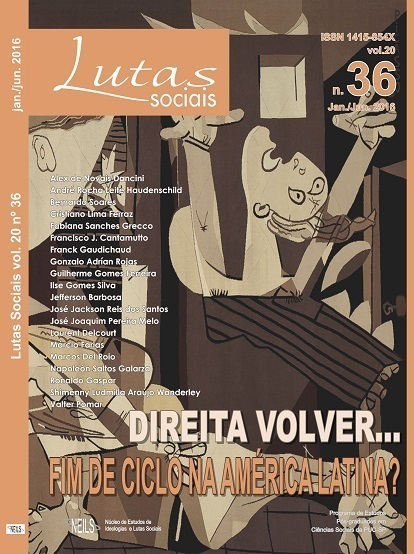Inicia un nuevo ciclo: perspectivas y límites de la Revolución Ciudadana en Ecuador
DOI:
https://doi.org/10.23925/ls.v20i36.31850Palavras-chave:
América Latina, gobierno Correa, neoinstitucionalismo.Resumo
América Latina vive ciclos políticos. En los sesenta-setenta del siglo pasado era el tiempo de las dictaduras; a fines de los setenta se inician los retornos a las democracias constitucionales; el nuevo milenio es el tiempo de los “gobiernos progresistas”. La ola se inicia con el triunfo electoral de Hugo Chávez en 1998 y se expande en el Continente. Diez y siete años después ya no es el tiempo del festejo, sino del balance.Downloads
Publicado
2016-06-30
Como Citar
Galarza, N. S. (2016). Inicia un nuevo ciclo: perspectivas y límites de la Revolución Ciudadana en Ecuador. Lutas Sociais, 20(36), 93–113. https://doi.org/10.23925/ls.v20i36.31850
Edição
Seção
Dossiê
Licença
Matérias assinadas não expressam necessariamente a posição do coletivo da revista e são de exclusiva responsabilidade do(a)s respectivo(a)s autore(a)s.
Ao enviar seus textos, o(a)s autore(a)s cedem seus direitos à Lutas Sociais, que autoriza, com prévia permissão do Comitê Editorial, a reprodução das publicações, desde que conste o crédito de referência.



